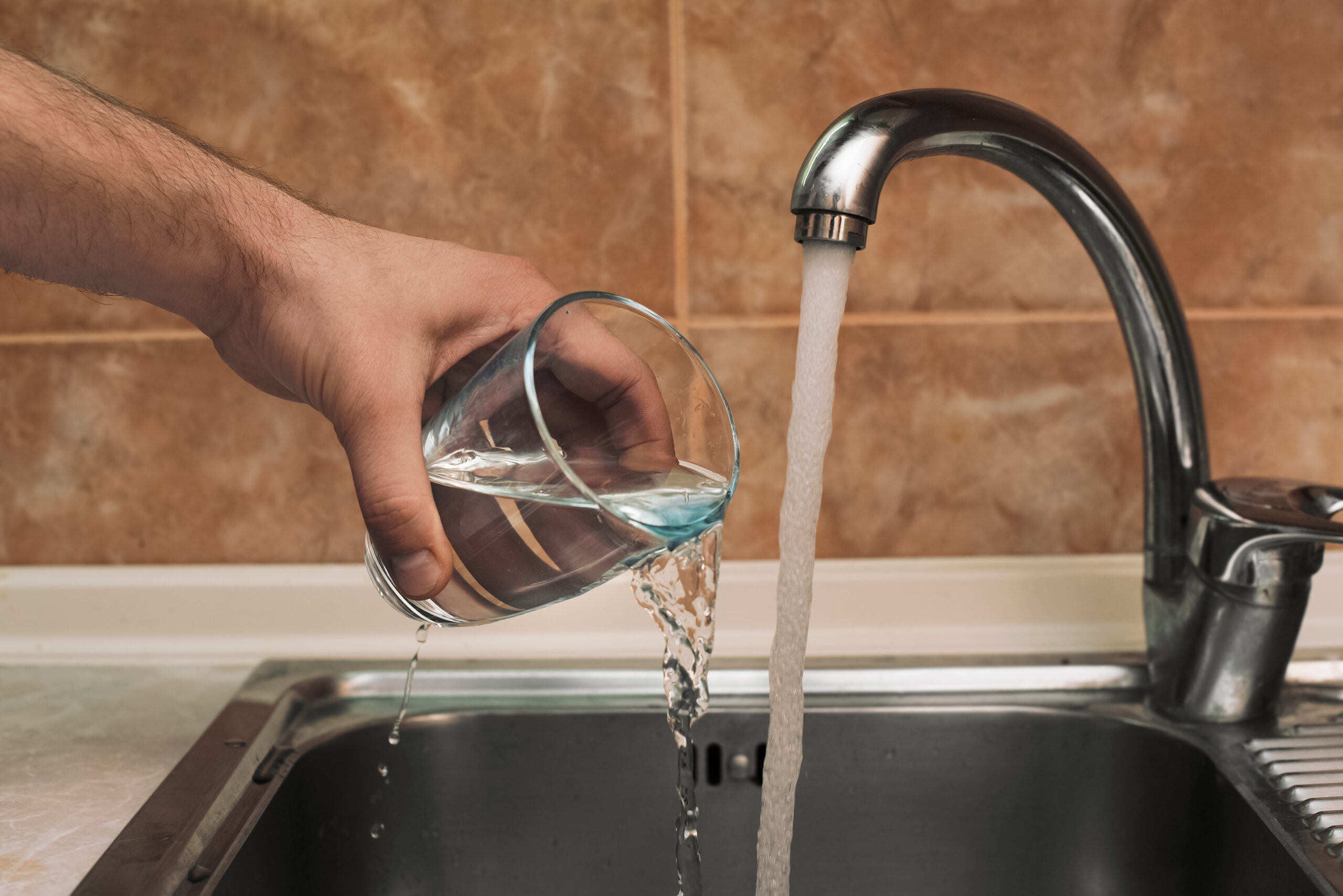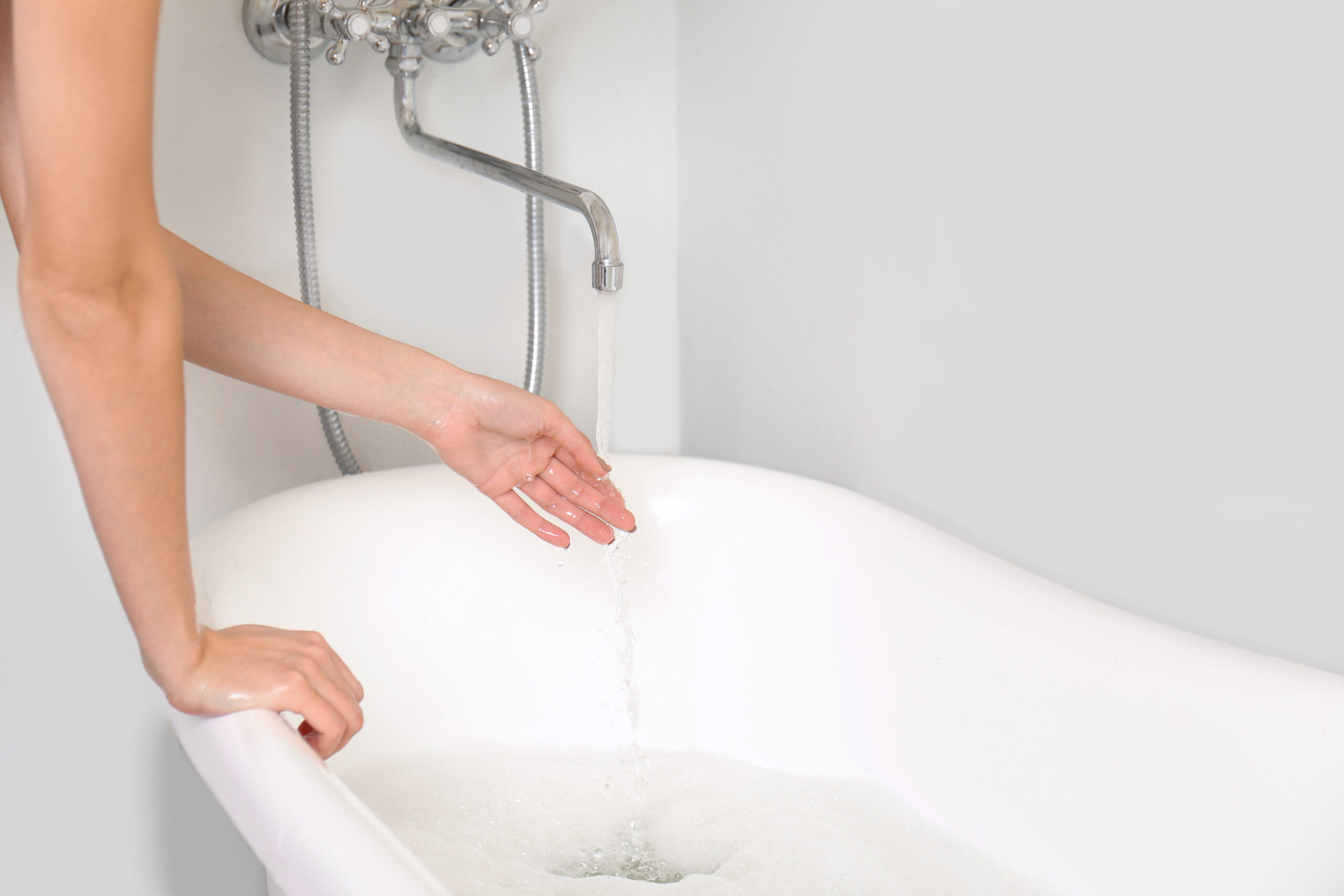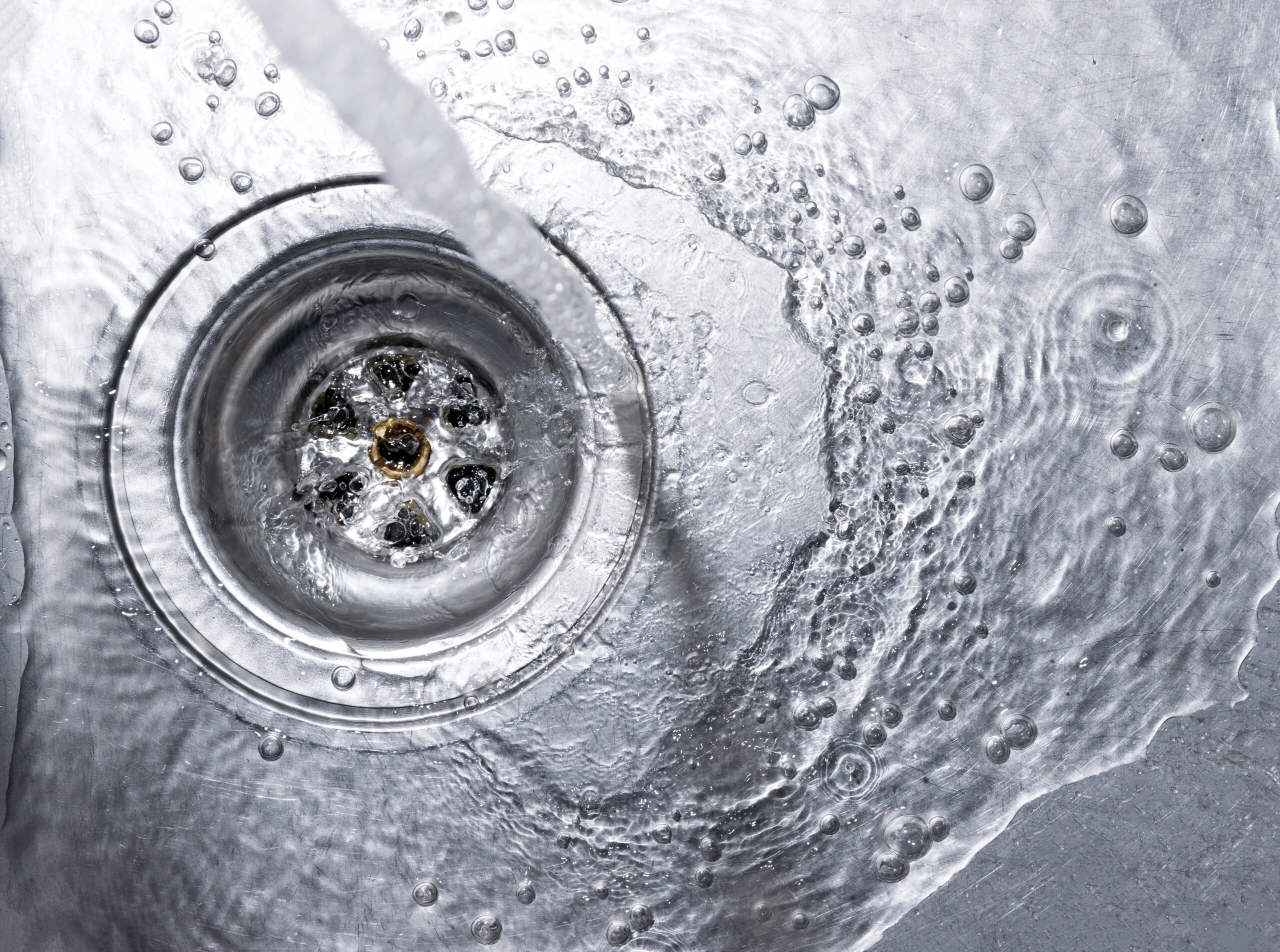Have you been dealing with an unpleasant rotten egg smell coming from your water? This unpleasant odor is not something you’re likely to be able to ignore or get used to, and you shouldn’t! Bad-smelling water usually points to an underlying issue with your water quality.
While some water quality issues can be hard to pick up on, strong odors are an easy indicator that typically elicits immediate action. So, what’s your next step? We’re here to help!
What Causes the Smell?
The presence of hydrogen sulfide presents itself as a distinct “rotten egg” smell. This hydrogen sulfide is produced by naturally-occurring sulfur bacteria in your well, plumbing system, or groundwater.
Sulfur bacteria are harmless by themselves, but can end up helping other bacteria grow and produce harmful gasses, like hydrogen sulfide, which you’ll want to filter out of your water.
Sulfates
You can identify sulfates in your water by a slightly salty taste. Some common sulfates that can enter the water supply are sodium sulfate, magnesium sulfate, and calcium sulfate.
High sulfate content in your water isn’t ideal because it can lead to the corrosion of your pipes and plumbing systems. Getting a water test will help you determine if sulfates are present in your water. If they are, reverse osmosis systems or water softeners may be installed to remove them.
What Should You Do if You Smell Rotten Eggs?
If you do experience any new odors, it is always important to find the source of the problem by checking taps and water supplies around the building.
- If your hot water smells like rotten eggs, it is most likely because of your water heater. Contact a water heater expert to see how this can be fixed.
- If your cold water also smells like rotten eggs, but only from the water treated by a water softener and not in the untreated water, the problem is likely to be sulfur bacteria in the water softener. Contact a water softener expert to see how this can be fixed.
- If the smell is strong when the water in both the hot and cold faucets is first turned on, and it diminishes or goes away after the water has run, or if the smell varies through time, the problem is likely to be sulfur bacteria in the well or plumbing system.
- If the smell is strong when both the hot and cold faucets are first turned on, the problem is likely hydrogen sulfide in the groundwater. This could also be a sign that there is a more dangerous problem with your water supply.

If the Problem is in the Water Heater
There are a few things that can be done to destroy and prevent sulfur bacteria. However, unless you are very familiar with water heater operation and maintenance, we recommend that you have a plumber or water system professional come in to do the work.
- Replace or remove the magnesium anode. The anode is a long metal rod, made of magnesium or aluminum, that extends through the tank’s interior. It attracts particles of iron, limestone or other minerals present in the water and corrodes in place of the tank. A replacement anode could provide corrosion protection without contributing to the production of hydrogen sulfide gas.
- Disinfect and flush the water heater with a chlorine bleach solution. Chlorination can kill sulfur bacteria. If all bacteria are not destroyed by chlorination, the problem may return within a few weeks.
- Increase the water heater temperature to 160 degrees Fahrenheit for several hours. This will destroy the sulfur bacteria. Flushing to remove the dead bacteria after treatment should control the odor problem. *CAUTION: Increasing the water heater temperature can be dangerous. Be sure to lower the thermostat setting and make certain the water temperature is reduced following treatment to prevent injury from scalding hot water and to avoid high energy costs.
How Hydrogen Sulfide Gas Can Be Produced in a Water Heater
Your water heater can produce hydrogen sulfide gas in two ways – creating a warm environment where sulfur bacteria can live, and sustaining a reaction between sulfate in the water and the water heater anode.
A water heater usually contains an anode rod thats purpose is to reduce the corrosion of the water heater tank. The anode is typically made of magnesium metal, which can supply electrons that aid in the conversion of sulfate to hydrogen sulfide gas.
If the Problem is in the Well, Plumbing System, or Water Softener
One possible solution is to disinfect the well and plumbing system with a strong chlorine solution. This is best done by hiring a licensed well contractor.
Sulfur bacteria can be difficult to remove once established in a well. Pre-work (such as scrubbing the well casing, using special treatment chemicals, and agitating the water before disinfection) may be necessary—especially if there are also iron bacteria. Contact a licensed well contractor in order to do this pre-work.
If the bacteria are in the water softener or other treatment devices, contact the installer or manufacturer.
If the Problem is in Groundwater
Two possible solutions include installing a home water treatment or drilling a new well in a different formation. Here are a few types of home water treatments that are effective at removing hydrogen sulfide gas:
Activated carbon filters are effective for hydrogen sulfide levels less than 1 milligram per liter (mg/L). Since the carbon filter can remove substances in addition to hydrogen sulfide gas, it is difficult to predict its service life. Some large carbon filters have been known to last for years, while some small filters may last for only weeks or even days.
The following options are effective for levels both below and above 1 mg/L.
- Oxidizing media filtration (such as a manganese greensand filter) are effective for hydrogen sulfide levels up to about 6 mg/L. This type of treatment is often used to treat iron problems in water.
- Aeration water treatment is effective for management of dissolved gasses such as radon, carbon dioxide, some taste and odor problems such as methane, and hydrogen sulfide. It also raises the pH of water.
- Continuous chlorination water treatment can effectively disinfect drinking water by oxidizing hydrogen sulfide to reduce those nuisance odors.
- Ozonation water treatment uses ozone gas to oxidize the iron, manganese, and sulfur in water to form insoluble metal oxides or elemental sulfur that can then be removed by post-filtration. Ozone also has a greater disinfection effectiveness against bacteria and viruses when compared to chlorination.
FAQs About Bad-smelling Water
Is Smelly Water Safe To Drink?
The smell of sulfur doesn’t necessarily mean that your water is unsafe to drink. However, if you do find that the scent, taste or appearance of your drinking water has noticeably changed, it’s important that you have it tested to discover the source of the issue. This will help you discover if there is anything harmful in your water and help you identify treatment options, even if it is safe to drink.
Is rotten egg-smelling water harmful?
In most cases, drinking water that has a strong rotten egg odor is perfectly safe to drink, even though it may be unpleasant. However, on some rare occasions, the odor may be caused by sewage or other contaminants in a building’s water supply, which could cause health problems.
Can I shower if my water smells like rotten eggs?
Water with hydrogen sulfide is still considered safe to bathe in – it just smells bad. However, as stated earlier, the odor may actually be caused by sewage or other contaminants in a building’s water supply, which can pose health risks. These cases are rare, but it’s always best to be safe.

Why does my water smell like rotten eggs only in one bathroom?
If your water smells like sulfur in one faucet but not the others, there could be a localized plumbing issue along one pipe or fixture. If there are unnecessary “dead legs” of plumbing leading nowhere and simply capped off, sometimes bacteria can build up there, leading to some smelly gas. However, before you call a plumber, you’ll want to double check that your sink smells like rotten eggs due to the water coming in and not the drain.
Can smelly well water make you sick?
Sulfur is common in drinking water and is usually safe. However, it could potentially
cause diarrhea and dehydration for some people. Babies are the most likely to get diarrhea from sulfur in water. If that is the case, your body may adjust over time to sulfur and symptoms may stop.
Does hard water cause a sulfur smell?
Hard water may have a metallic or a dirt taste and can smell like rotten eggs. The taste can be from the water containing too much iron. The smell can be explained by hydrogen sulfide gas or bacteria reacting with magnesium. The best solution for dealing with hard water would be installing a water softener.
Getting a Water Test
The first step to fixing your water quality is finding the source of the problem with a professional water test. A water test will tell you about any bacteria, chemicals, calcium, iron (causing hardness), and pH imbalances. From there, the right solution is easy. As an added bonus, our water tests are completely free.
Things you will want to check your water for: hydrogen sulfide, sulfate, sulfur bacteria, iron bacteria, chlorine, TDS (total dissolved solids), sodium, lead, and arsenic.
Water Quality Solutions at Blakeslee & Son
Whether you have a serious water quality problem or simply poor smelling and tasting water, the Blakeslee & Son team is happy to help install a top of the line water filtration system.
Here are some of the most common solutions we provide:
- Whole-Home Taste and Odor Filters – These filters make having good-tasting water easy. Taste and odor filters absorb contaminants like chlorine, minerals, or metals in your water to make sure you consistently have clean, odorless water.
- Whole-Home Sediment Filters – Are you struggling with fluctuating water temperature or a lack of hot water? Sediment and rust in your water heater could reduce its effectiveness to next to nothing— and these filters are the solution.
- Water Softeners – A water softener will eliminate those pesky hard water issues (like dry skin and soap scum residue) caused by excess iron and calcium in your water.
- Iron Curtain Filters – Fed up with the bad smell of your water? If your free water test shows high levels of iron, sulfur, and manganese, these filters get you back on track with odorless water.
- Reverse Osmosis Systems – Looking for pure water assurance? These reverse osmosis systems have several filtration stages to make sure your water is free of common chemicals like sodium, chloride, iron, sulfates, and more.
Blakeslee & Son is happy to provide installation for Sterling Water Conditioning Products! Contact us to learn more!
We can install your water softener, water filtration, or water purification systems in and around Rockford, Michigan. Our expert team has been helping keep Rockford families safe and healthy with clean water for over 75 years!




